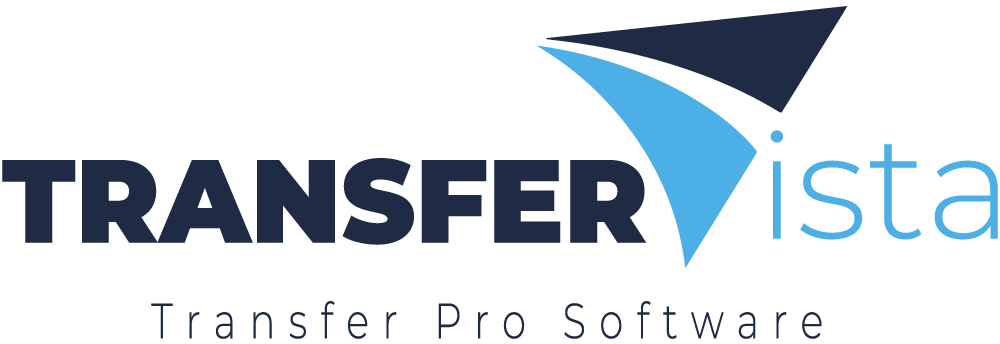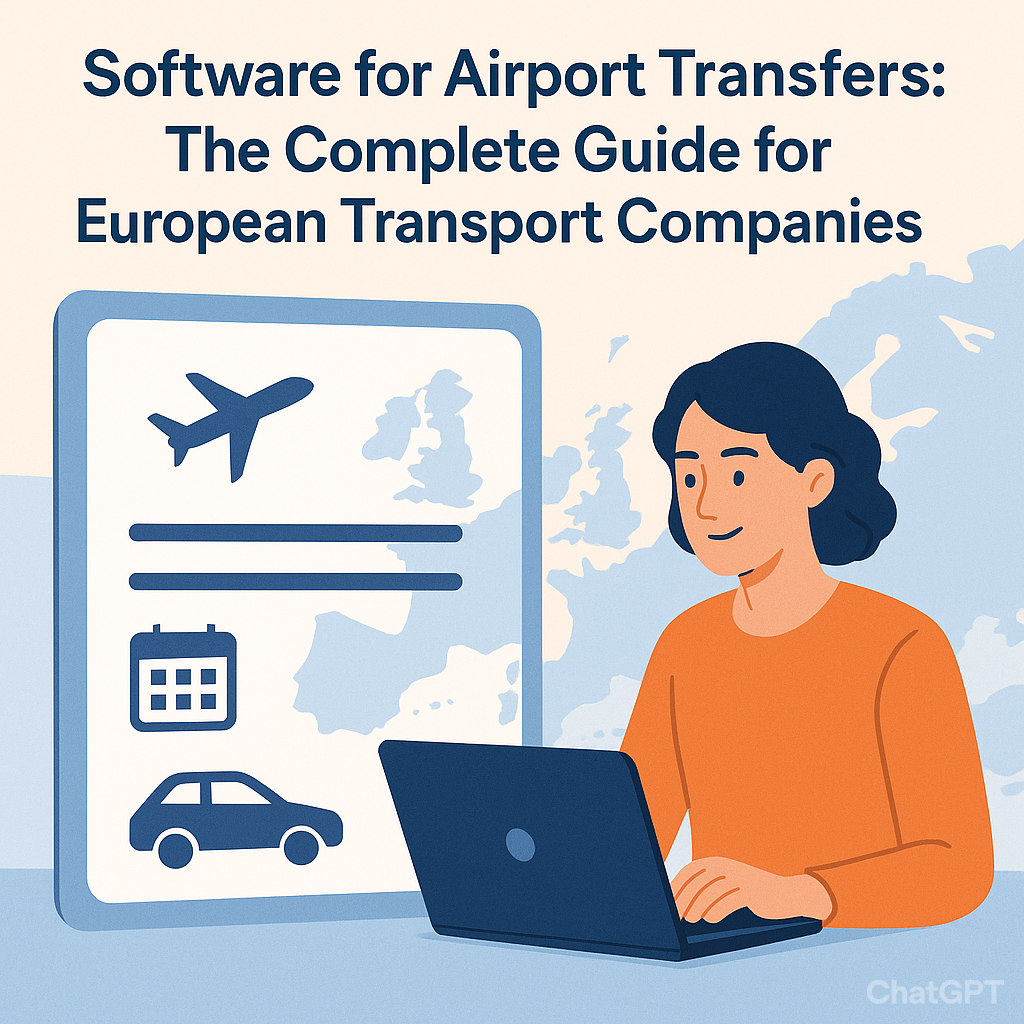The airport transfer industry in Europe is experiencing unprecedented growth, with millions of passengers requiring reliable transportation between airports and their destinations every year. As customer expectations rise and competition intensifies, transport companies need sophisticated software solutions to manage bookings, optimize operations, and deliver exceptional service. This comprehensive guide explores the essential features of airport transfer software and why choosing the right platform can transform your business.
Understanding Airport Transfer Software
Airport transfer software is a specialized management system designed to streamline every aspect of running a passenger transportation service. From initial booking to final drop-off, these platforms automate workflows, reduce manual errors, and provide real-time visibility into operations. For companies operating in Europe’s diverse markets, the right software solution must handle multiple languages, currencies, and regulatory requirements while maintaining seamless performance across borders.
Modern airport transfer software goes far beyond simple booking management. It integrates vehicle tracking, driver management, payment processing, customer communication, and business analytics into a unified platform. This integration eliminates data silos, reduces administrative overhead, and enables companies to scale their operations efficiently without proportionally increasing staff costs.
Check below the essential features that an Airport transfer booking software should have!
Essential Features of Airport Transfer Software
When evaluating software for airport transfers, several core features determine whether a platform can truly optimize your operations. Advanced booking management capabilities form the foundation, allowing customers to book transfers through multiple channels including websites, mobile apps, and partner platforms. The system should automatically calculate prices based on distance, vehicle type, time of day, and any applicable surcharges while providing instant confirmation to customers.
Real-time flight tracking integration is non-negotiable for a dedicated Software for Airport Transfers. The software must monitor flight arrivals and departures, automatically adjusting pickup times when flights are delayed or arrive early. This proactive approach prevents driver idle time, reduces customer wait times, and demonstrates professional service that builds customer loyalty.
Fleet and driver management functionality ensures optimal resource allocation. The platform should track vehicle availability, maintenance schedules, driver working hours, and certifications. Intelligent dispatch algorithms assign the most suitable vehicle and driver to each booking based on location, vehicle type requirements, driver ratings, and efficiency considerations. This optimization reduces empty miles, maximizes revenue per vehicle, and ensures compliance with driver working time regulations.
Payment Processing and Multi-Currency Support
Operating across European markets requires sophisticated payment processing capabilities. Comprehensive airport transfer software must support multiple payment methods including credit cards, debit cards, digital wallets, bank transfers, and account billing for corporate clients. The platform should handle various currencies seamlessly, applying current exchange rates and processing payments in the customer’s preferred currency while settling in your business currency.
Payment security is paramount, requiring PCI DSS compliance and robust fraud detection mechanisms. The software should tokenize sensitive payment data, use secure payment gateways, and provide detailed transaction records for accounting and reconciliation purposes. Automated invoicing functionality streamlines billing for corporate accounts, while flexible deposit and payment term options accommodate different customer preferences.
Customer Communication and Experience (important parts of an Airport transfer booking software)
Superior customer experience differentiates successful airport transfer companies from competitors. Modern software platforms enable automated, personalized communication throughout the customer journey. Confirmation emails with detailed booking information, driver details, and vehicle photos provide reassurance immediately after booking. Pre-arrival reminders ensure customers are prepared for their transfer, while real-time SMS updates keep them informed of driver location and estimated arrival time.
The software should support multiple communication channels including email, SMS, WhatsApp, and in-app messaging, allowing customers to choose their preferred method. Multilingual capabilities are essential for European operations, with the platform automatically detecting customer language preferences and delivering communications in their native language. This attention to detail creates professional impressions that encourage repeat bookings and positive reviews.
Operational Efficiency and Dispatch Management
Efficient dispatch management directly impacts profitability in the airport transfer business. Advanced software uses intelligent algorithms to assign bookings based on multiple factors including driver location, traffic conditions, vehicle suitability, and driver performance metrics. The system should provide dispatchers with real-time visibility into all active bookings, driver locations, and vehicle status through intuitive dashboard interfaces.
Route optimization functionality reduces fuel costs and increases the number of transfers each vehicle can complete daily. The Airport transfer booking software should calculate the most efficient routes considering real-time traffic data, roadworks, and historical traffic patterns. Dynamic routing capabilities allow drivers to receive updated directions when conditions change, ensuring punctual service even in congested urban environments.
Check our ultimate guide for b2b tour operator software where we share additional insights about that part.
Reporting and Business Intelligence
Data-driven decision making requires comprehensive reporting and analytics capabilities. Quality airport transfer software generates detailed reports on key performance indicators including booking volumes, revenue per vehicle, driver performance, customer satisfaction scores, and operational costs. These insights enable managers to identify trends, optimize pricing strategies, and make informed decisions about fleet expansion or service adjustments.
Financial reporting features should track revenue by service type, customer segment, booking channel (such as hotel.com), and geographic region. Cost analysis tools help identify inefficiencies and opportunities for margin improvement. Customer analytics reveal booking patterns, popular routes, and seasonal demand fluctuations, enabling proactive capacity planning and targeted marketing campaigns.
Integration Capabilities and Scalability
Modern airport transfer software must integrate seamlessly with other business systems and platforms. API connectivity enables integration with accounting software, CRM platforms, hotel booking systems, and travel agency platforms. These integrations eliminate duplicate data entry, reduce errors, and create efficient workflows that save time and administrative costs.
Scalability is crucial for growing businesses. The software architecture should handle increasing booking volumes without performance degradation. Cloud-based Airport transfer booking software solutions offer advantages including automatic updates, remote accessibility, and elimination of on-premise server maintenance. The system should support multiple locations, subsidiary companies, and franchise operations from a single platform while maintaining appropriate data segregation and access controls.
Compliance and Regulatory Requirements
Operating across European markets requires compliance with various regulatory frameworks. Airport transfer software must facilitate GDPR compliance for customer data protection, including consent management, data retention policies, and right-to-erasure functionality. The platform should maintain audit trails for all data access and modifications, providing documentation for regulatory audits.
Driver and vehicle licensing management features ensure compliance with local transportation regulations. The system should track license expiration dates, insurance renewals, vehicle inspection schedules, and driver certification requirements. Automated alerts notify managers when renewals are approaching, preventing service disruptions due to expired credentials.
Why TransferVista Leads the European Market
TransferVista has emerged as the premier Airport transfer booking software solution for airport transfers in Europe, offering a comprehensive platform specifically designed for the unique challenges of the European transportation market. Unlike generic booking systems, TransferVista was built from the ground up to address the complexities of operating across multiple countries, languages, and regulatory environments.
The platform’s sophisticated flight tracking integration monitors arrivals and departures across all major European airports in real-time, automatically adjusting pickup schedules and notifying both drivers and customers of changes. This proactive approach has helped TransferVista clients achieve industry-leading on-time performance rates, building reputation and customer loyalty in competitive markets.
TransferVista’s multilingual capabilities support over 25 European languages with native-speaking customer support available across time zones. The platform automatically detects customer language preferences and delivers all communications, booking confirmations, and driver instructions in the appropriate language. This localization extends to currency handling, with support for all European currencies and automatic conversion at current exchange rates.
The dispatch and fleet management functionality in TransferVista represents years of refinement based on feedback from hundreds of European transport companies. The intelligent assignment algorithm that is part of our Software for Airport Transfers, considers dozens of variables to optimize resource allocation, reducing empty miles by an average of 23% compared to manual dispatch methods. Real-time traffic integration and dynamic routing ensure drivers take the most efficient paths, even in congested urban environments like London, Paris, or Rome.
TransferVista’s reporting and analytics suite provides unprecedented visibility into business performance. Customizable dashboards display real-time KPIs, while detailed reports reveal trends and opportunities for optimization. The platform’s predictive analytics capabilities help companies forecast demand, optimize pricing, and plan capacity adjustments before peak periods.
Integration capabilities set TransferVista apart from competitors that provide Software for Airport Transfers. The platform offers pre-built connectors for major accounting systems, hotel booking platforms, and travel agency networks. RESTful APIs enable custom integrations with proprietary systems, while webhook functionality supports real-time data synchronization with third-party applications. This openness creates seamless workflows that eliminate duplicate data entry and reduce administrative overhead.
Security and compliance receive paramount attention in TransferVista’s architecture. The platform maintains SOC 2 Type II certification and full GDPR compliance, with data centers located in Europe to ensure data sovereignty. Granular permission controls allow administrators to define precise access levels for staff members, while comprehensive audit logs track all system activities for security and regulatory purposes.
TransferVista’s pricing model aligns with business growth, using transaction-based fees rather than large upfront investments. This approach makes enterprise-grade software accessible to companies of all sizes, from independent operators with small fleets to major transportation networks managing hundreds of vehicles. The platform scales seamlessly as businesses grow, with no need for complex upgrades or migrations to enterprise tiers.
Implementation and Support
Successful software implementation requires comprehensive planning and support. TransferVista provides dedicated implementation specialists who work with companies throughout the onboarding process, configuring the platform to match existing workflows and integrating with current systems. Data migration services ensure smooth transitions from legacy systems, preserving historical booking information and customer data. If you are looking for the best Software for Airport Transfers this is the way to go!
Training programs ensure staff can utilize all platform capabilities effectively. TransferVista offers on-site training, virtual workshops, and self-paced learning resources tailored to different roles including administrators, dispatchers, drivers, and customer service representatives. Ongoing support includes 24/7 technical assistance, regular platform updates with new features, and access to a community forum where users share best practices and solutions.
Conclusione
Selecting the right software for airport transfers represents a strategic decision that influences every aspect of your transportation business. The ideal platform combines robust booking management, intelligent dispatch optimization, comprehensive reporting, and seamless integrations while remaining intuitive for staff and customers alike.
TransferVista stands as the leading solution for European airport transfer companies, offering a platform specifically engineered for the complexities of the European market. With sophisticated functionality, multilingual support, regulatory compliance, and scalable architecture, TransferVista enables transportation companies to deliver exceptional service, optimize operations, and grow profitably in competitive markets.
For companies serious about modernizing their airport transfer operations and gaining competitive advantage, TransferVista is the best Software for Airport Transfers that provides the comprehensive software solution needed to succeed in today’s demanding transportation landscape. The platform’s proven track record across Europe, combined with continuous innovation and dedicated support, makes it the definitive choice for forward-thinking transportation companies.


